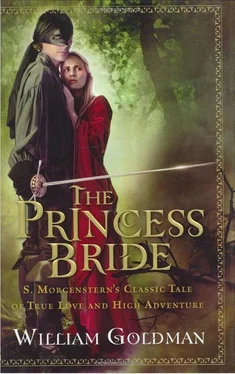Young?
The mist was rising around her as Adela began to think. Well of course I'll always be sensitive, she thought, and I'll always be rich, but I don't quite see how I'm going to manage to always be young. And when I'm not young, how am I going to stay perfect? And if I'm not perfect, well, what else is there? What indeed? Adela furrowed her brow in desperate thought. It was the first time in her life her brow had ever had to furrow, and Adela gasped when she realized what she had done, horrified that she had somehow damaged it, perhaps permanently. She rushed back to her mirror and spent the morning, and although she managed to convince herself that she was still quite as perfect as ever, there was no question that she was not quite as happy as she had been.
She had begun to fret.
The first worry lines appeared within a fortnight; the first wrinkles within a month, and before the year was out, creases abounded. She married soon thereafter, the selfsame man who accused her of sublimity, and gave him merry hell for many years.
Buttercup, of course, at fifteen, knew none of this. And if she had, would have found it totally unfathomable. How could someone care if she were the most beautiful woman in the world or not. What difference could it have made if you were only the third most beautiful. Or the sixth. (Buttercup at this time was nowhere near that high, being barely in the top twenty, and that primarily on potential, certainly not on any particular care she took of herself. She hated to wash her face, she loathed the area behind her ears, she was sick of combing her hair and did so as little as possible.) What she liked to do, preferred above all else really, was to ride her horse and taunt the farm boy.
The horse's name was "Horse" (Buttercup was never long on imagination) and it came when she called it, went where she steered it, did what she told it. The farm boy did what she told him too. Actually, he was more a young man now, but he had been a farm boy when, orphaned, he had come to work for her father, and Buttercup referred to him that way still. "Farm Boy, fetch me this"; "Get me that, Farm Boy—quickly, lazy thing, trot now or I'll tell Father."
"As you wish."
That was all he ever answered. "As you wish." Fetch that, Farm Boy. "As you wish." Dry this, Farm Boy. "As you wish." He lived in a hovel out near the animals and, according to Buttercup's mother, he kept it clean. He even read when he had candles.
"I'll leave the lad an acre in my will," Buttercup's father was fond of saying. (They had acres then.)
"You'll spoil him," Buttercup's mother always answered.
"He's slaved for many years; hard work should be rewarded." Then, rather than continue the argument (they had arguments then too), they would both turn on their daughter.
"You didn't bathe," her father said.
"I did, I did" from Buttercup.
"Not with water," her father continued. "You reek like a stallion."
"I've been riding all day," Buttercup explained.
"You must bathe, Buttercup," her mother joined in. "The boys don't like their girls to smell of stables."
"Oh, the boys!" Buttercup fairly exploded. "I do not care about 'the boys.' Horse loves me and that is quite sufficient, thank you.
She said that speech loud, and she said it often.
But, like it or not, things were beginning to happen.
Shortly before her sixteenth birthday, Buttercup realized that it had now been more than a month since any girl in the village had spoken to her. She had never much been close to girls, so the change was nothing sharp, but at least before there were head nods exchanged when she rode through the village or along the cart tracks. But now, for no reason, there was nothing. A quick glance away as she approached, that was all. Buttercup cornered Cornelia one morning at the blacksmith's and asked about the silence. "I should think, after what you've done, you'd have the courtesy not to pretend to ask" came from Cornelia. "And what have I done?" "What? What? ...You've stolen them." With that, Cornelia fled, but Buttercup understood; she knew who "them" was.
The boys.
The village boys.
The beef-witted featherbrained rattleskulled clodpated dim-domed noodle-noggined sapheaded lunk-knobbed boys.
How could anybody accuse her of stealing them? Why would anybody want them anyway? What good were they? All they did was pester and vex and annoy. "Can I brush your horse, Buttercup?" "Thank you, but the farm boy does that." "Can I go riding with you, Buttercup?" "Thank you, but I really do enjoy myself alone." "You think you're too good for anybody, don't you, Buttercup?" "No; no I don't. I just like riding by myself, that's all."
But throughout her sixteenth year, even this kind of talk gave way to stammering and flushing and, at the very best, questions about the weather. "Do you think it's going to rain, Buttercup?" "I don't think so; the sky is blue." "Well, it might rain." "Yes, I suppose it might." "You think you're too good for anybody, don't you, Buttercup?" "No, I just don't think it's going to rain, that's all."
At night, more often than not, they would congregate in the dark beyond her window and laugh about her. She ignored them. Usually the laughter would give way to insult. She paid them no mind. If they grew too damaging, the farm boy handled things, emerging silently from his hovel, thrashing a few of them, sending them flying. She never failed to thank him when he did this. "As you wish" was all he ever answered.
When she was almost seventeen, a man in a carriage came to town and watched as she rode for provisions. He was still there on her return, peering out. She paid him no mind and, indeed, by himself he was not important. But he marked a turning point. Other men had gone out of their way to catch sight of her; other men had even ridden twenty miles for the privilege, as this man had. The importance here is that this was the first rich man who had bothered to do so, the first noble. And it was this man, whose name is lost to antiquity, who mentioned Buttercup to the Count.
THE LAND OF Florin was set between where Sweden and Germany would eventually settle. (This was before Europe.) In theory, it was ruled by King Lotharon and his second wife, the Queen. But in fact, the King was barely hanging on, could only rarely tell day from night, and basically spent his time in muttering. He was very old, every organ in his body had long since betrayed him, and most of his important decisions regarding Florin had a certain arbitrary quality that bothered many of the leading citizens.
Prince Humperdinck actually ran things. If there had been a Europe, he would have been the most powerful man in it. Even as it was, nobody within a thousand miles wanted to mess with him.
The Count was Prince Humperdinck's only confidant. His last name was Rugen, but no one needed to use it—he was the only Count in the country, the title having been bestowed by the Prince as a birthday present some years before, the happening taking place, naturally, at one of the Countess's parties.
The Countess was considerably younger than her husband. All of her clothes came from Paris (this was after Paris) and she had superb taste. (This was after taste too, but only just. And since it was such a new thing, and since the Countess was the only lady in all Florin to possess it, is it any wonder she was the leading hostess of the land?) Eventually, her passion for fabric and face paint caused her to settle permanently in Paris, where she ran the only salon of international consequence.
For now, she busied herself with simply sleeping on silk, eating on gold and being the single most feared and admired woman in Florinese history. If she had figure faults, her clothes concealed them; if her face was less than divine, it was hard to tell once she got done applying substances. (This was before glamour, but if it hadn't been for ladies like the Countess, there would never have been a need for its invention.)
Читать дальше












